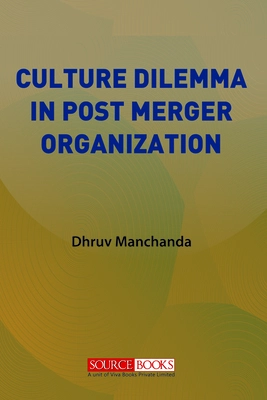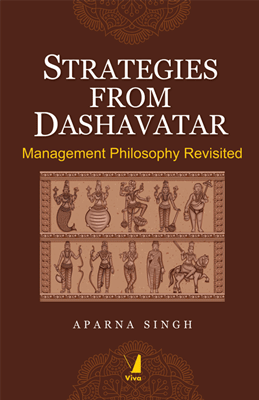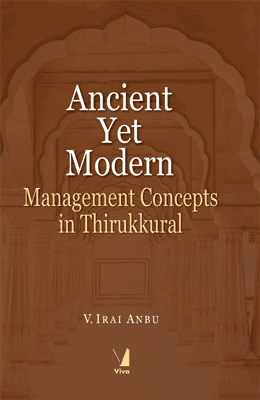Best Book On Knowledge Management
Knowledge Management
New Horizons
₹625.50 ₹695.00 Save: ₹69.50 (10%)
Go to cartISBN: 9789387692008
Bind: Hardbound
Year: 2020
Pages: 210
Size: 6 x 9 Inch
Publisher: Viva Books Originals
Sales Territory: Worldwide
The book is a comprehensive account of the application of knowledge in resolving organizational issues. This is a new paradigm in managing the affairs of any organization. The case studies, from real life experiences by the author, amply justify the viability of knowledge application in the organizations.
The book brings in different classifications of knowledge, i.e. tacit, explicit and embedded categories, and their influences on knowledge management in the organizational context.
The brain-mind dialogue drives the comprehension of the different parameters of knowledge with resultant application strategy. This is highlighted in the discussions.
The author, recalling his exposure to various organizations in India and abroad, has introduced the concept of a separate knowledge stream, called 'embedded knowledge', which evolves mainly from prevailing organizational culture.
The views of experts on knowledge management like Nonaka Ikujiro and Hirotaka Takeuchi, Thomas H. Davenport and Laurence Prusak, Kimiz Dalkir, Paul R. Gamble and John Blackwell et.al have been considered to offer further credence to the author's analysis.
The author argues that knowledge management is an opening of new horizons to sustain progress, prosperity and intellectual superiority of the organization.
The book is a compilation of different elements of knowledge management as perceived, experienced and practiced by the author during more than three decades of his engagements in the organizations in India and abroad. It is also a significant attempt to focus on new horizons, in keeping with global operations of the organizations, wherever they are expected to operate from.
At this juncture of progress and prosperity in the world, there is hardly any scope to adhere to stereotyped ideas in respect of technology, techniques, systems and procedures. The bottom line is to survive on global competition with all-round innovation, incubation and inclusion. Knowledge management has a major role in this.
The book depicts an attempt to channelize the efforts in such way that organizational objectives are aligned to individual aspirations.
Target Audience:
Useful for students of Management Institutes and Business Professionals.
Contents:
Chapter 1. Prologue
Chapter 2. Knowledge – An Overview
Definition, Classifications, Further Classifications, Explicit and Embedded Knowledge – Interface, Tacit and Explicit Knowledge – Interface, Role of Knowledge in Transforming Mind, Knowledge Build-up
Chapter 3. Dynamics of Learning
Phases in Learning, Psychology of Learning, Learning Process, Theory of Learning
Chapter 4. Domains of Knowledge
Knowledge Transfer – Tacit to Explicit, Knowledge Retrieving Process, Entrepreneur-driven, Individual Accountability, Consultant-driven, Cross-culture Exposure, Idea Generations
Chapter 5. Knowledge Retention
Interface – Explicit Knowledge and Knowledge Retention, Interface – Embedded Knowledge and Knowledge Retention, Interface – Tacit Knowledge and Knowledge Retention, Classification of Knowledge and Retention
Chapter 6. Dynamics of Knowledge Conversion
Knowledge Codification: An Analysis, Elements for Codification, Engineering Profession (Phase – 1), Tacit Knowledge – Exploration and Application, Literary Profession (Phase – 2), Role of Knowledge in the Efforts
Chapter 7. Interface – Knowledge and Organization
Interface, Knowledge-Skill Interface, Interpretation of Skill under Knowledge Management
Chapter 8. Stages of Knowledge Application
Application Criteria, Explicit Knowledge, Embedded Knowledge, Tacit Knowledge, Elements Contributing to the Knowledge Generation, Attitude-Motivation Interface
Chapter 9. Knowledge Management
Knowledge Management – How it Works, Knowledge Generation, Knowledge Dispersion, Knowledge Acquisition, Knowledge Preservation, Knowledge Reclamation, Knowledge Codification, Knowledge Upgradation, Knowledge Systemization
Chapter 10. Tacit Knowledge – Core Elements in Knowledge Management
What is Tacit Knowledge?, How it is Generated?, How it is Related to an Individual Working on any Assignment?, Existing Practice, Importance of Tacit Knowledge in an Organizational Set-up, Techniques for Generation and Capture of Tacit Knowledge, Retrieval of Knowledge as an Organizational Asset, No End to Generation of Tacit Knowledge
Chapter 11. Problem Solving – Knowledge Generation
Initiation, Exploration, Action, Evaluation
Chapter 12. Cultural Context in Knowledge Management
Introduction, Basic Elements in Knowledge Management
Chapter 13. Knowledge Management – Further Analysis
Structure, Knowledge Creation, Managing Knowledge Creation, System Support, Planning, Deploying People, Outlining Operating Procedure, Co-ordinating at Different Levels, Executing, Preserving, Knowledge Application Systems
Chapter 14. Knowledge Management – New Windows
How they Operate?, Cases from Xerox Corporation, Hewlett-Packard, Hoffmann-La Roche Pharmaceutical Company
Chapter 15. Knowledge Preservation
Special Cell for Knowledge Preservation, HRD's Involvement in Knowledge Preservation, HRD Strategy for Knowledge Preservation, Other Intervention Procedures to Preserve Knowledge
Chapter 16. Cost-Benefit Analysis in Knowledge Management
Cost-benefit Analysis in Operations, Cost-benefit Analysis in Knowledge Management, Structure of Cost-benefit Analysis, Cost Structure, Benefit Structure, How Knowledge Management Fits into it?
Chapter 17. Author's Perspectives on Knowledge Management
Perspectives, Tacit Knowledge leads to Simple Solutions, Generation of Tacit Knowledge is Individual Oriented, Work Culture, Motivation, Stereotyping against Uniqueness, Embedded Knowledge Interfacing, Access to Tacit Knowledge, How does the Author Access Tacit Knowledge?, Random Thoughts
Chapter 18. Knowledge Management in Hindu Scriptures
Guiding Thoughts, History of Spiritual Scriptures, Knowledge Generation in Scriptures, Interface between Scriptural Doctrines and Normal Life, Knowledge – Miracles Interface, Doctrines in Hindu Scriptures
Chapter 19. Epilogue
Reference
Business Manager
Magazine - 07/Apr/2018

About the Author:
A.B. Kar obtained his degree in Mechanical Engineering from Jadavpur University, India, followed by a postgraduate degree in Production Engineering from Strathclyde University, Glasgow, UK. He worked with Caterpillar Tractor Company Ltd., UK and Larsen & Toubro Ltd., India for about three decades, apart from being associated with other reputed organizations in India and abroad through consultancy assignments after retirement.
He was an Adjunct Professor with IIT Kharagpur in Maintenance Engineering and Management for a full semester, teaching postgraduate students and guiding them in their project work.
He was the Founder Director of Indian Institute for Production Management for more than a decade having been deputed by Larsen & Toubro Ltd. In that capacity he collaborated with the University of Manchester, UK, Welding Institute, Cambridge, UK, and Fluid Power Society, USA.
He was actively associated with Professional Bodies in the UK (International Federation of Training and Development - IFTDO), the USA (American Society for Training and Development - ASTD) and India (All India Management Association, Indian Institute of Plant Engineers, etc.).
He retired from active services during 2000 and is currently a full-time writer on different subjects where he developed expertise during his professional career.







